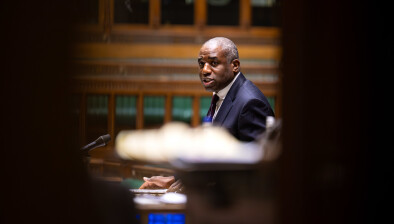High Court: Application to vary or vacate nurse’s suspension denied

Andrew McKeown BL
The High Court has denied an application to vary or vacate a nurse’s suspension order.

About this case:
- Citation:[2020] IEHC 470
- Judgment:
- Court:High Court
- Judge:Ms Justice Mary C. Irvine
Background
The nurse, identified as EL, applied to the High Court to re-enter proceedings for the purposes of seeking to vary and/or vacate an order made on 2 December 2019 made by then President of the High Court, Mr Justice Peter Kelly, who extended an earlier order made suspending EL’s registration on the Register of Nurses and Midwives pursuant to s.58 of the Nurses and Midwives Act 2011.
That section provides that the Nursing and Midwifery Board may apply to the court for an order suspending the registration of a registered nurse or registered midwife if the Board considers the suspension is necessary to protect the public.
The first order suspending EL’s registration was made on 13 August 2019 and was extended on two further occasions with his consent. However, at the time he consented to those orders, he did not have legal representation, so an order was made permitting him to apply to vary or vacate the order of 2 December 2019.
Allegations were made concerning events which took place in the night and early morning of 25 and 26 February 2019, in a nursing home in Bray, Co. Wicklow. EL was the only nurse on night duty, but he was assisted by two healthcare assistants and one additional assistant who was responsible for a particular resident.
There were 32 residents in the nursing home including 12 high dependency residents. One such resident, referred to by the court as patient A, was a man who suffered from diabetes and was recovering from major surgery. Patient A died shortly after the respondent’s nightshift concluded.
It was alleged EL failed to test the patient A’s blood sugar every 15 minutes in accordance with the nursing home’s Management of Diabetic Residents Policy. It was further alleged that he failed to administer rapidly absorbed carbohydrate to raise blood sugar levels having tested and found the patient to be hypoglycaemic, and that he failed to inform a doctor or call an ambulance, having regard to the patient’s presentation.
On the same night, another resident, referred to by the court as patient B, sustained a fractured femur following a fall which EL had been told had occurred at a time when the patient was not being assisted by a member of staff.
It was alleged that EL failed to diagnose that the patient had fractured her left femur, and that he again failed to escalate the incident so as to procure medical assistance.
Nursery and Midwifery Board
In the aftermath of these events the nursing home notified the Nursing and Midwifery Board that an investigation was underway and that as a result of an internal review, an external company, Acrux Consulting Limited (Acrux), had been retained to conduct an investigation.
Following a consideration by the Board of all of the materials before it and all of what was said by EL concerning the allegations of misconduct against him, the Nursing and Midwifery Board concluded that the public interest warranted the making of a s.58 application. The s.58 application was grounded on the affidavit of Essene Cassidy, president of the Nursing and Midwifery Board. The Board’s legal assessor had explained how the public interest had to be balanced against the very significant consequences for EL should his registration be suspended.
The Board concluded that the events, if established at inquiry stage, would constitute a significant falling short of what would be expected from a registrant with similar years of experience if faced with a similar series of clinical events and that such professional misconduct potentially could warrant a striking off of the registrant either permanently or for a definite period.
EL contended that the effect of Mr Justice Kelly’s order suspending his registration was to deny him his right to practice his profession and that his right to earn a livelihood has been disproportionately infringed. He had not been notified of a date for his Fitness to Practice hearing.
EL argued that the evidence upon which the Board relied and later put before the court should be rejected as evidence insufficient to ground and obtain an interim suspension.
High Court
Ms Justice Mary Irvine, president of the High Court, found that “S.58 could not be clearer in its terms.” Regarding the proposition raised by EL that the application should the suspension application should have been grounded by evidence tendered by a person with professional knowledge of the nursing industry, the judge asked “Who better qualified to put forward the evidence to support the s. 58 application than Ms Essene Cassidy, a registered General Nurse, Public Health Nurse and President of the Nursing and Midwifery Board?”
The judge said that it could not be stated that the complaints upon which the application for an inquiry before the Fitness to Practice Committee is based are not of a nature as could have justified the Board making a decision to seek to suspend the respondent.
She noted that in the court’s consideration of whether an error or misconduct should be considered serious, it must evaluate whether or not it led to an adverse outcome (Corbally v. Medical Council & Ors [2015] 2 IR 304), and that it is alleged that patient A died as a result of his hypoglycaemic state and EL’s failure to respond adequately. EL’s alleged failure to diagnose a fractured femur following a fall which occurred at the time the patient was unassisted “is clearly also a matter of grave concern.”
The president rejected EL’s submissions to the apparent strength of the case made against him: “On his own account, he did not test patient A’s blood sugars with the frequency required or take the steps necessary to administer the GlucaGen HypoKit.” The court said that the fact that other members of staff who came on duty later that morning may also have been in breach of their professional obligations to patient A is irrelevant to its considerations.
“Those professionals may, in due course, become the subject matter of separate complaints of professional misconduct. She said that as far as patient B is concerned, it is clear that EL “accepts that he was ultimately told that patient B had had a non-assisted fall but failed to detect any injury even though he contends that he assessed the patient on a number of occasions.”
Conclusion
Ms Justice Irvine dismissed the application, but noting that there may come a time when the balance tips due to delay, she gave him liberty to reapply in 2021 if the Fitness to Practice inquiry has not been concluded.








